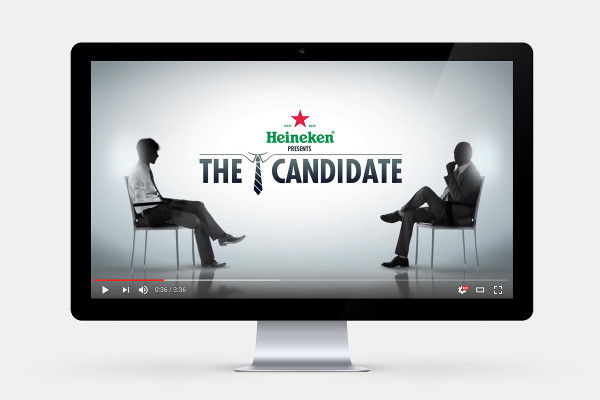Hiring managers and HR professionals could probably conduct a standard interview in their sleep. The same tired questions, the same handshakes, the same cup of water (though hopefully not literally)—it’s no wonder that so many companies are trying to shake things up these days in the recruitment space. Trying out new tactics for pre-screening and interviewing isn’t just to make the process more interesting for HR though—it’s often to reveal certain skills and personality traits or ensure candidates don’t give rehearsed answers.
Also read: Hiring Employees Who Thrive in an Innovative Workplace
Unconventional interviews run the gamut from bizarre questions to off-the-wall settings, and occasionally bring up questions of legality. These 4 strange interviewing methods from companies all over the country are far from the only ways organizations are getting creative with hiring, but they’re definitely unique. Do they go too far, or get results? That’s still unclear.
1. Strange riddles and puzzles
Famous among ultra-competitive companies like Google and HP, some organizations know what they want—and how to get it. Interviewing with one of these companies often requires answering mind-bending puzzles that test creativity and root out candidates who aren’t able to think on their feet. The puzzles don’t have “right” answers most of the time—but it’s a method for finding out how each candidate responds under pressure.
2. Working out candidates’ work ethic
Getting physical instead of mental is another way some companies are taking the interviewing process. Some companies have taken to conducting interviews during a workout or game of basketball. While some companies have a link to fitness in their product, services and/or values, others use this tactic just to unnerve potential employees and see how they’ll respond. Safety risks aside, it’s difficult to say what this tells a hiring manager about their candidate apart from grace under stress.
3. Unrelated questioning & modern communications
Lots of the weirdest interview questions these days aren’t the complex puzzles of Google, they’re the personal or seemingly random ones that companies ask to either gauge whether a candidate fits into the company’s brand and purpose. Glassdoor’s list of the weirdest interview questions show that nothing is off-limits—but should it be? Is it really important to know why a tennis ball is fuzzy?
Other companies aren’t interested so much in the questions themselves, but the mode of communication. As texting has taken over as a major means of communication, a few interviews have taken place completely over this medium. But it isn’t limited to texting—one internship required candidates to post a series of tweets on Twitter to decide who would get the position.
4. Interesting atmospheres
The conference room is not a place that puts candidates at ease. It’s high-pressure, impersonal, and just not the style of some companies. In order to set a more welcoming, relaxing, or culture-specific atmosphere, some hiring managers really shake it up.
CMO of Wix, Omer Shai, sometimes takes candidates to breakfast for their interview—on the office’s rooftop terrace. He does it to see how they react in a more atypical, relaxed environment, with a lot of activity around them. G-Adventures takes relaxation a step further, and has their candidates play in a plastic ball pit with potential coworkers. Can’t relax? Might not be a culture fit.
Also read: Shape Company Culture Before It’s Too Late: 4 Hiring Strategies for the Best Fits
5. Pros and Cons of Unconventional Interviews
In the modern economy, employers often have the upper hand—there’s so much competition for most open roles that the standards for job seekers seems to always be increasing. However, that doesn’t mean that every company should use unconventional interviewing methods to keep candidates on their toes. There are some definite pros and cons to shaking things up during the hiring process.
So what are the benefits of odd interviews? Many employers who use these methods say that it helps them evaluate a candidates ability to quickly solve problems and think on their feet, especially when they are in an unexpected situation or environment. While it’s true that unexpected questions can prevent candidates from being too rehearsed, it’s important that employers design the questions and situations to actually tell them something about the candidate, rather than being unexpected purely for the element of surprise. Unusual interviews can also be a good way to make sure a candidate is a culture fit—an important element in the modern office, where organizations expect employees to embody their values and wear many hats.
On the negative side, some of these interviewing methods could put candidates’ safety at risk, or even be illegal. In less extreme cons, the interviewing methods may not tell HR professionals what they need to know to make a good decision.
Whether you’re sticking to the tried-and-true questions or forging a new interviewing path, there are no easy answers. The good news? Interviewing potentially just got a lot more interesting.
Download our eBook on Learning and Development Trends and find out how technology enables continuous learning in organizations.
Image via skinnygeorge.com






Leave A Comment